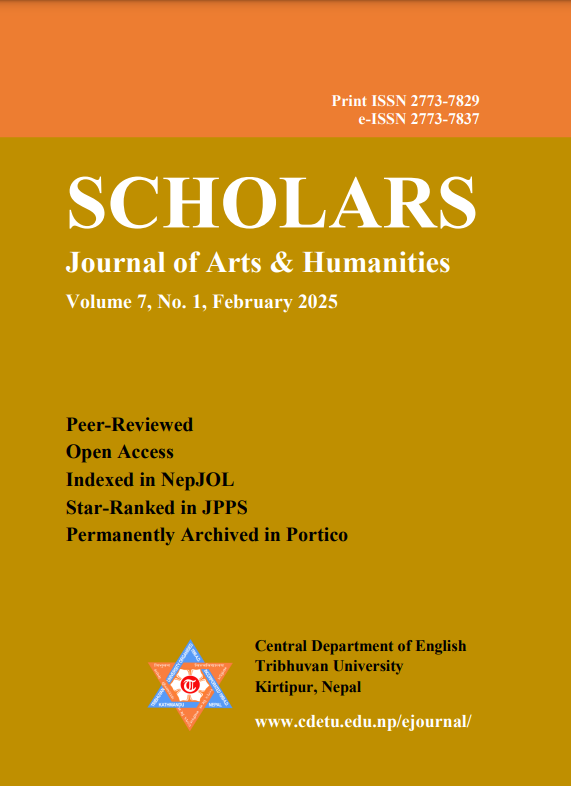The Smallness of God in Arundhati Roy's The God of Small Things
DOI:
https://doi.org/10.3126/sjah.v7i1.75678Keywords:
Divinity, human existence, transcendence, marginalized voicesAbstract
This paper explores the intricate portrayal of the smallness of God in Arundhati Roy's The God of Small Things, focusing on the character of Velutha. Drawing on Emmanuel Levinas’s concept of kenosis (self-emptying) and his philosophy of ethical responsibility, this study examines Velutha as an embodiment of divinity in the marginalized. Unlike conventional representations of God as omnipotent, Roy presents divinity in the minute, fragile, and often overlooked aspects of life. By analyzing Velutha’s role within the socio-political landscape of caste and power, this paper argues that Roy redefines divinity as deeply intertwined with human suffering and ethical responsibility.
Downloads
Downloads
Published
How to Cite
Issue
Section
License

This work is licensed under a Creative Commons Attribution 4.0 International License.
© Central Department of English, Tribhuvan University and Authors




